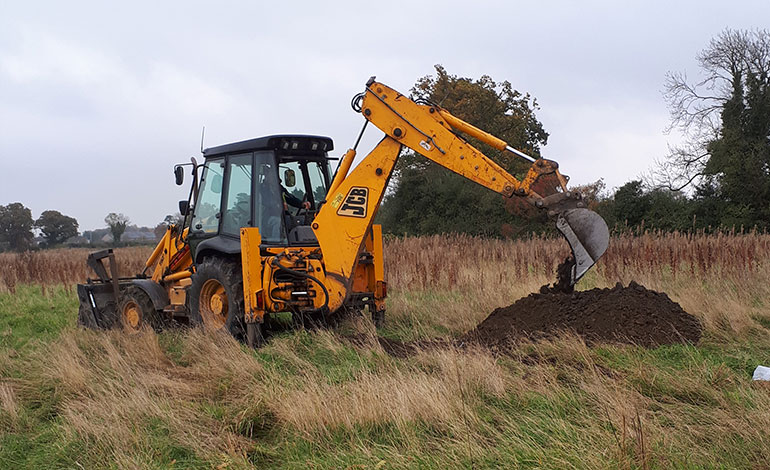

Trial Pitting
Ground Investigations Ireland Ltd. has over twenty engineers with a range of qualifications including Geotechnical Engineers, Engineering Geologists and Environmental Engineers who have received in house training to allow them to carry out Trial Pitting. They are selected for the project depending on the project’s primary requirements.
Professional trial pitting allows subsurface soil types and relative thicknesses to be accurately recorded. Due to the large size of the exploratory hole it gives a clearer understanding of thin strata’s and provides a better knowledge of weathering characteristics applicable to rock formations. Trial pitting is often used as a quick and cost-effective method for gleaning a basic understanding of the soil profile across a site, or to supplement information provided by other methods of investigation that are undertaken concurrently.
Trial pitting is generally carried out with a large excavator to reach depths of up to 4.50m BGL, but it can also be carried out with smaller machinery and by hand digging in sites with access limitations.
A suitably experienced Engineer is present at all times to log the soil encountered and take a photographic record of the excavation and excavated material. Groundwater is monitored when encountered. All sampling requirements are such to meet our Client requirements.
Detailed geotechnical logs are prepared using AGS compatible software.
Ground Investigations Ireland can prepare soil test schedules and will undertake soil testing to determine the soil engineering characteristics required for engineering design to our Client’s needs.
Additional testing in trial pits can include infiltration / soakaway testing (in accordance with the guidance as set out in BRE 365), CBR testing and in-situ strength testing.
Ground Investigations will provide a full report including a detailed log of each pit, associated photos and laboratory testing along with comprehensive as-built plans, compiled in accordance with the Client’s requirements.
All fieldworks are carried out in accordance with Eurocode 7 part 2 Ground Investigation and Testing (ISEN 1997-2:2007) and British Standards: BS 5930.